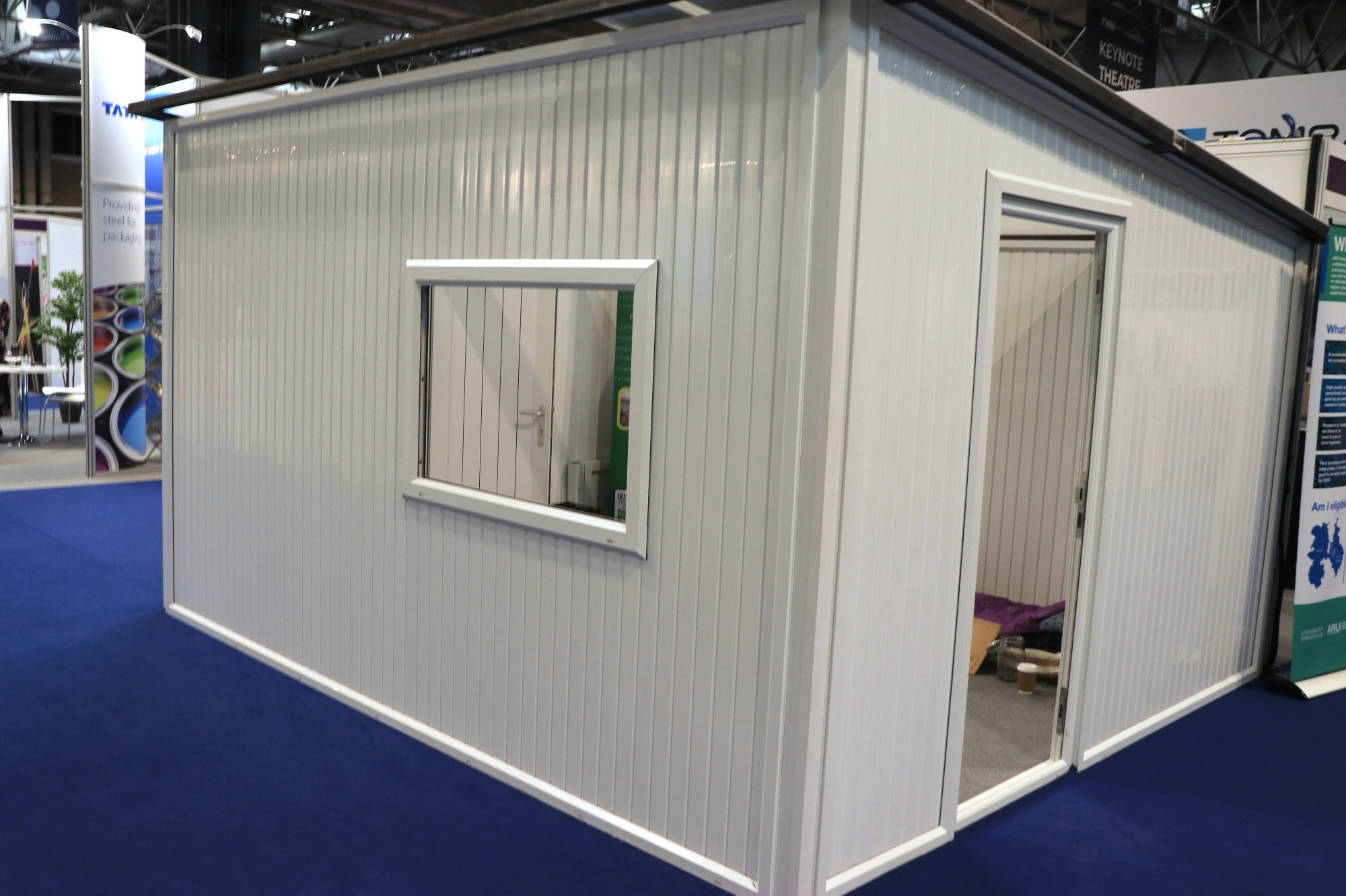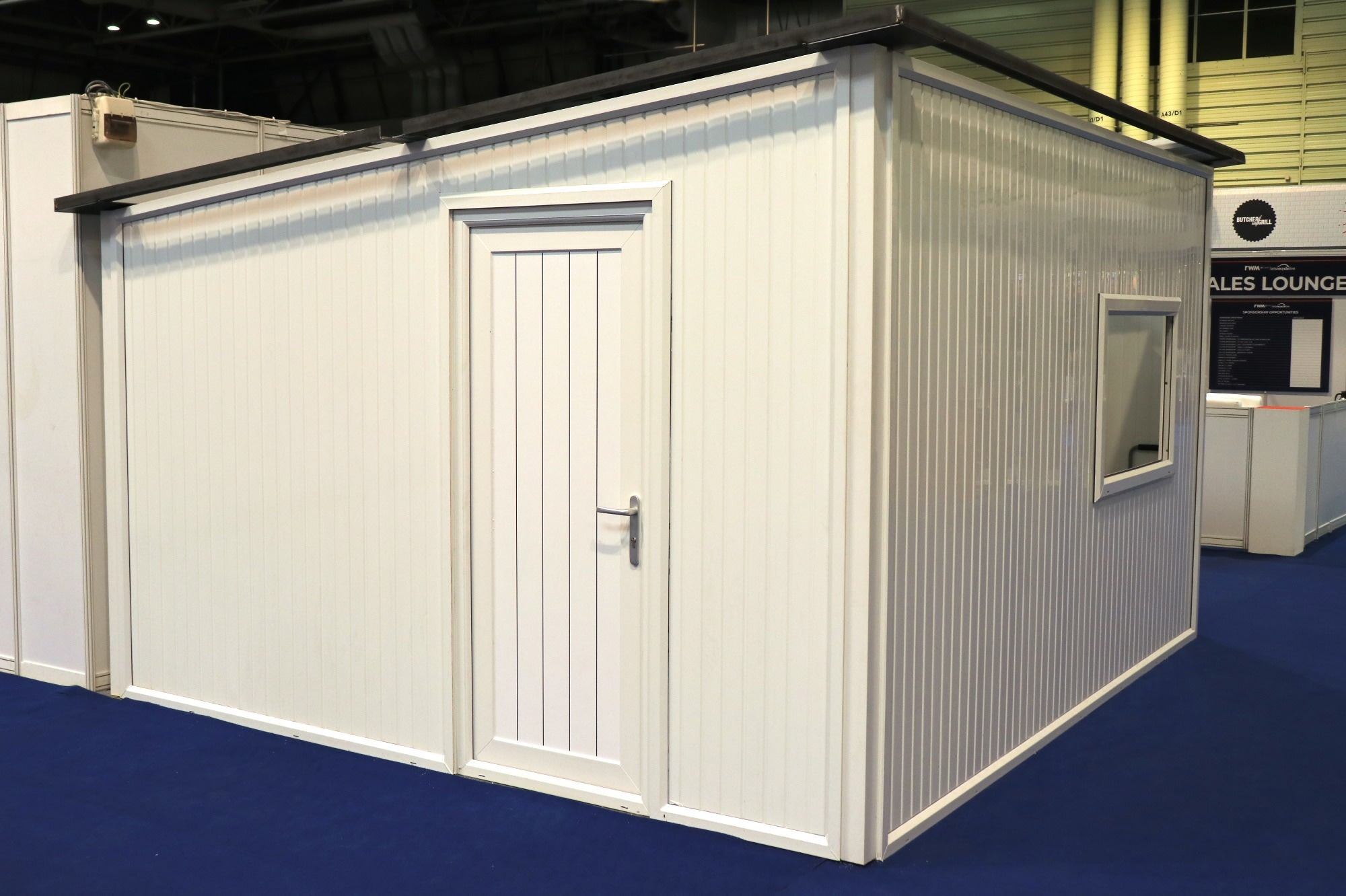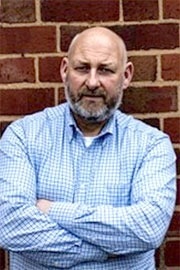AZoBuild talks with Stephen Ford, Director at Suscons and Founder of Street2Meet, about initiatives he is overseeing that look to provide sturdier, longer-lasting, and safer emergency shelter to those who need it.
Please could you introduce yourself and your professional background?
My name is Stephen Ford. My background has varied over the years, which brings a lot of experience in different sectors:
2004 – 2010 - Professional Commercial Finance Brokers specializing in SME Businesses and Startups mostly Asset Finance, Commercial Mortgages, and Trade Invoices.
2010 – 2015 - Became a HGV Driver and quickly found myself in management roles and identified an opportunity to provide a bus service for workers from Rugby to Magna Park. I took a calculated risk and obtained an operator's license and passed my test driving a bus with permission from Gazzaley Estates, who own the Magna Park site with very little experience. I successfully started a bus route in competition with Stagecoach, and later sold the business.
I was later awarded as a Member of the Institute of Logistics and Transport - MILT.
2014 – Present - I currently invest in startup businesses, from designing affordable social housing for over 50’s, improving renewable energy, and research and development of waste materials.
I currently self-study with the Royal Institute of Chartered Surveyors and the Chartered Institution of Building Services Engineers.
You are the director of Suscons, a company designing and manufacturing products including rubber roof tiles and modular homes. What is the ethos of Suscons and the driving force behind its product development?
The ethos behind Suscons was born from a collaborative research project, Alternative Raw Materials with Low Impact (ARLI), which is run by the University of Birmingham. Suscons is an organization that aims to be disruptive in a positive way, by doing things differently within the construction industry. We research and develop innovative, sustainable projects, but more importantly, we have a social conscience and everything we do is aimed at changing lives for all sectors of society by putting people first, avoiding waste, minimizing energy, and making a difference by improving conditions, both here in the UK and overseas.
Our team is made of qualified engineers from various backgrounds, and we welcome working with universities to bring new advanced technology and sustainable materials to market through extensive research and development.
As well as acting as director of Suscons, you have founded a charity called Street2Meet that looks to provide emergency accommodation to the homeless. What led to your involvement in this important work?
In 2010 I became bankrupt following the global financial crash in 2008. My business collapsed I found myself going through a divorce, repossession, and debt all in the same year. This put me in the vulnerable position of becoming homeless. Following an advert in a national newspaper, a recruitment company was advertising for new HGV drivers, willing to offer accommodation and training.

Prior to making my way there, I negotiated terms due to my circumstances in order to feel comfortable and started hitchhiking to Didcot (Oxfordshire, England) from Ayr (Ayrshire, Scotland) with no money and just a bag of clothes. I thumbed my way there, talking to HGV drivers. Luck had it that a local company called had a depot in Newbury, and the driver agreed to drop me off at a garage just outside Didcot. At 2 am the following day I was sitting outside the office of Total Recruitment to register as a trainee HGV driver for Tesco.
I later formed a small foundation in 2019 following my visit to Peru helping local communities, and this brought back memories of being in a worse situation. This speared a greater understanding of why people in the UK are still homeless in a relatively wealthy country. I carried out in-depth research and walked the streets with Shelter in Birmingham to understand more, then put some innovative thoughts to paper and secured a pilot scheme. With the help of architects, we designed a blueprint for a homeless hub and sustainable pathway to overcome the current issues and problems that face the local authorities now and in the future.
How do Street2Meet and Suscons interrelate in terms of mission?
The Street2Meet mission is to provide solutions and overcome the barriers that homeless people face now and in the future by not just providing accommodation, which is the easy part, but actually providing ongoing sustainable support and changing people’s lives now and in the future.
We are aiming to promote, for the benefit of the public, urban or rural regeneration in areas of social and economic deprivation in England and Wales, in particular the West Midlands, by all or any of the following means:
•The provision of housing for those who are in conditions of need and the improvement of housing in the public sector or in charitable ownership, provided that such power shall not extend to relieving any local authorities or other bodies of a statutory duty to provide or improve housing
•The creation of new skill training and employment opportunities by the provision of workspace, buildings, and/or land for use on favorable terms.
Suscons' mission is that as an independent innovative company with a passion for doing the right thing we will find a way to say “Yes!”. We are developing a range of products to suit the needs and aspirations of our customers while protecting the environment. This includes the shelter which can not only be used in disaster/conflict areas but also as the first step in housing the homeless in an easily erected, comfortable, and secure self-contained unit.
Working together, the two organizations can provide a complete service for local authorities to shelter the homeless and provide useful training and occupation to help them rise out of poverty.
At the RWM & LetsRecycle Live 2022 in September, you presented an easy-to-construct modular shelter that could be used to provide emergency accommodation. Could you please tell us more about this?
Every year, around 14 million people become homeless worldwide due to natural and conflict disasters. A large percentage of refugees end up in UNHCR tents, which are designed for an 18-month life span; inevitably camps exist for much longer than this. While tents made from textile or plastic sheets are the simplest and most frequently supplied form of shelter in post-disaster areas, they have serious problems besides their short lifespan, including being poorly insulated and ventilated, uncomfortable to live in, and more importantly, not secure, particularly for women and children.
Suscons, working with the University of Birmingham’s ARLI collaborative research team, have looked at solving two problems at once by developing a more habitable shelter from waste plastic. The design of the 100% recycled plastic shelter has been developed over the last 18 months and exceeds UNHCR requirements for a 4-person shelter. The shelter is delivered as a flatpack in standard ISO freight containers, is quickly erected by unskilled labor, and provides not only emergency shelter but also longer-term temporary accommodation, with a minimum lifespan of 15 years of continual usage. Doors and windows are lockable, providing much-needed security.
What are the dimensions of these shelters, and what materials are used?
The shelters provide an internal space of 3.5m x 4.0m with a minimum height of 2.0m, providing secure accommodation for a family of 4 people for a minimum of 15 years. They can be linked together to increase the internal space.
The shelters are made from 100% waste plastic which, at the end of life, can be shredded and re-purposed, with no waste. Our ultimate aim is to produce these shelters in developing countries where there is a surplus of plastic so we can provide secure shelter and help reduce the problems of plastic waste.
Is there any limit to where these shelters could be erected?
No, they can be used in any climate, hot or cold, and we are developing anchoring systems so that the shelters can be erected in windy locations or over water.

How do you envision these shelters tackling the issues of homelessness and displacement on a bigger scale?
If we can secure 1% of the market that would mean that 28,000 people each year would have safe, sanitary accommodation which would not only provide emergency shelter but also transitional shelter over a longer period of time before moving into permanent accommodation. We are actively talking to relief organizations and agencies to persuade them that the whole life investment is much less than for emergency accommodation alone.
At home, working with Street2 Meet, we estimate that 40,000 people require safe secure accommodation every night. Even with a 10% market share, that would place 4,000 people in secure accommodation.
The Street2Meet vision and mission is to roll out this solution and our services nationally or even internationally as awareness grows.
What is the most exciting or rewarding part of your work between these two organizations?
Changing people’s lives and bringing innovative products to the marketplace. I thrive on innovative research and development.
Where can readers find more information?
We are currently updating our website and will provide this at a later stage.
https://www.sustainabilitywestmidlands.org.uk/news/street-2-meet-and-suscons-are-tackling-homelessness-with-sustainable-construction-methods/
About Stephen Ford
 Stephen is highly experienced in considering social, economic, and environmental impacts in the practical delivery of projects that are well-designed, commercially competitive, easy to construct, and sustainable. He has substantial expertise in structural engineering design and in leading multidisciplinary teams. His projects have included the use of recycled materials, modular construction, and low-carbon techniques. Stephen holds positions in several start-up businesses and continues to thrive bringing innovative ideas to the table. Director at Bluefin Living ltd where he works on the design of affordable retirement/starter homes for low-income families where one of the smaller projects secured several national and regional awards for its approach to sustainability. Much of his career was spent with ARLI ( University of Birmingham) where he continues to carry our research and development, latterly based in Birmingham. , He also is a Member of the Board of Advisors for Bright Let an Innovated start-up company. Recently has a position as Executive Director of Suscons UK Ltd. Stephen is well known within his network for bringing innovative ideas to the table and structuring credible teams to drive projects forward.
Stephen is highly experienced in considering social, economic, and environmental impacts in the practical delivery of projects that are well-designed, commercially competitive, easy to construct, and sustainable. He has substantial expertise in structural engineering design and in leading multidisciplinary teams. His projects have included the use of recycled materials, modular construction, and low-carbon techniques. Stephen holds positions in several start-up businesses and continues to thrive bringing innovative ideas to the table. Director at Bluefin Living ltd where he works on the design of affordable retirement/starter homes for low-income families where one of the smaller projects secured several national and regional awards for its approach to sustainability. Much of his career was spent with ARLI ( University of Birmingham) where he continues to carry our research and development, latterly based in Birmingham. , He also is a Member of the Board of Advisors for Bright Let an Innovated start-up company. Recently has a position as Executive Director of Suscons UK Ltd. Stephen is well known within his network for bringing innovative ideas to the table and structuring credible teams to drive projects forward.
Career highlights
Disclaimer: The views expressed here are those of the interviewee and do not necessarily represent the views of AZoM.com Limited (T/A) AZoNetwork, the owner and operator of this website. This disclaimer forms part of the Terms and Conditions of use of this website.